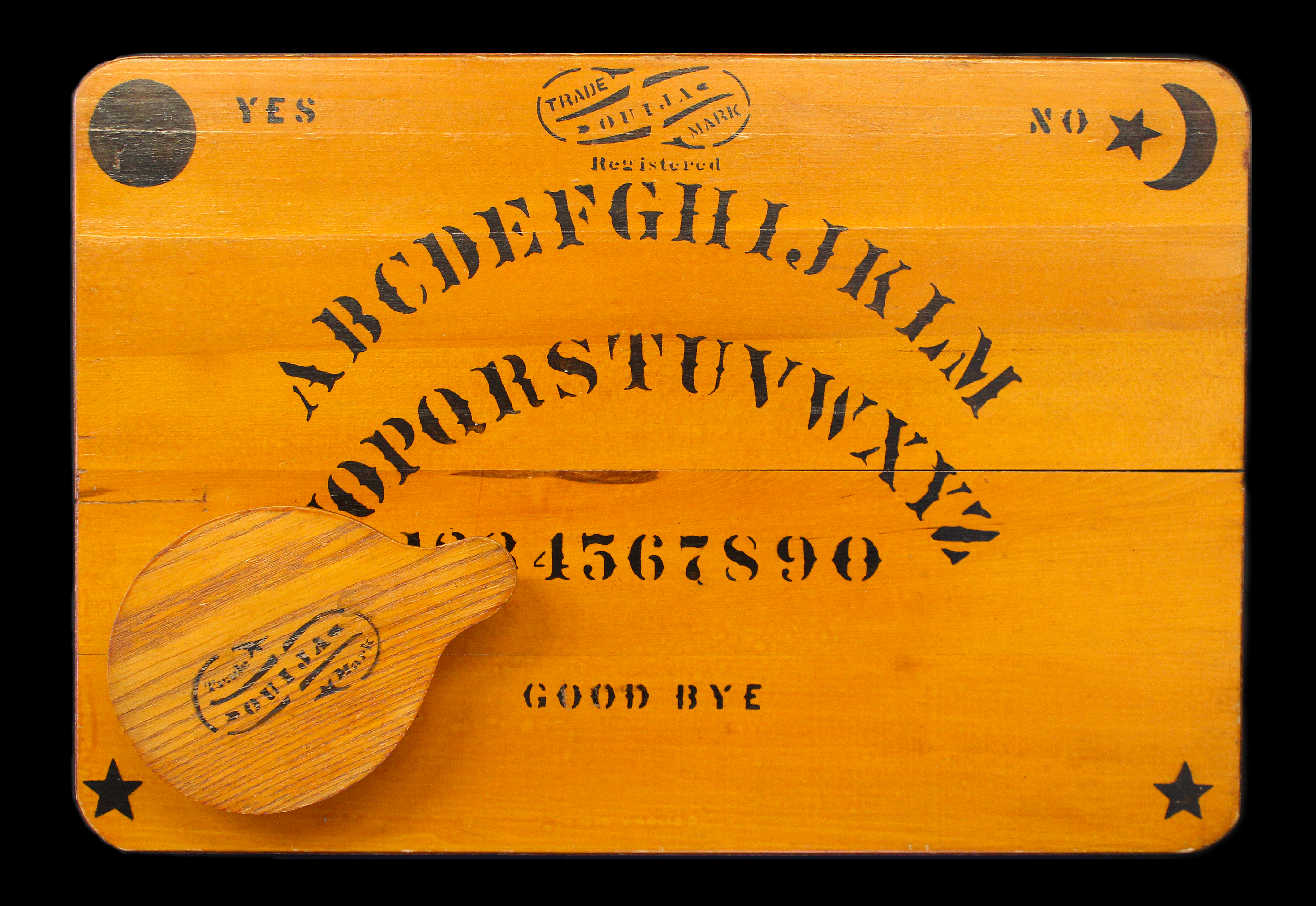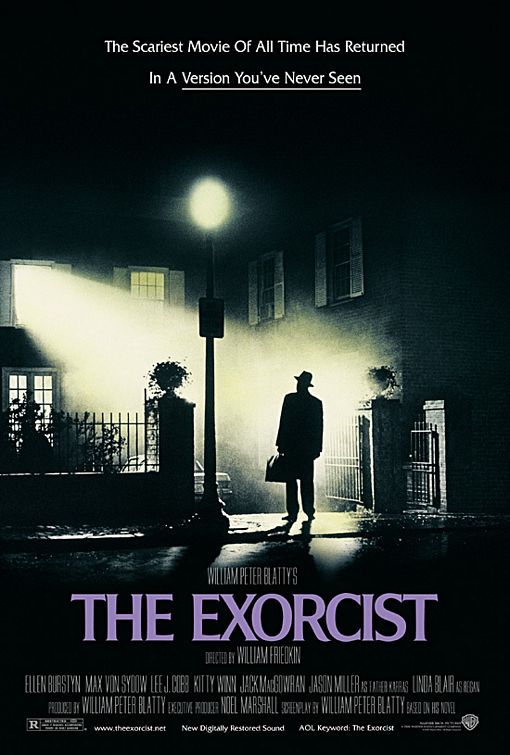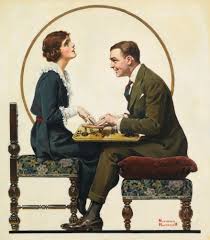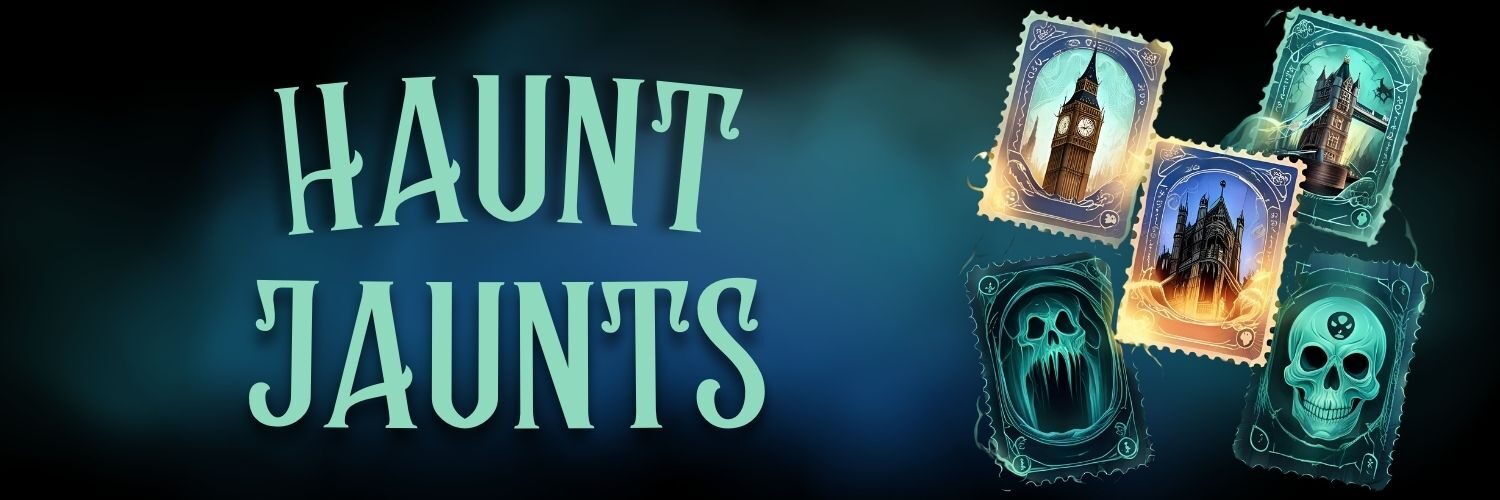
Ouija Board = Good Luck!
Ten facts about the Ouija Board you may not know.
- The Kennard Novelty Company applied for a patent on the game on July 1, 1890. Spirit or talking boards were already popular as America was reconciling the deaths from the now ended Civil War.
- Shortly after receiving the patent, US Patent 446,054, on February 10, 1891, the Ouija Novelty Company took over production of the games.
- William Fuld did not invent the game. Nor was he associated with filing the patent.
- However, William Fuld was a suave businessman and ended up owning the patent. Fuld died in 1927. He fell from a ladder at a new faculty a Ouija Board reportedly told him to build.
- Baltimore Talking Board Co. Inc. v. Joshua W. Miles, Collector of the Internal Revenue, 273 Fed., 531, settle the legal dispute on whether the smaller “wee” Ouija board measuring 5” by 8” was a game or a toy. In 1922, the Fourth Circuit Court found that it was, in fact, a game—as described in the patent application and advertising. Fuld was out $202.81 plus attorney fees.
- The Fuld family sold the Ouija patent to Parker Brothers in 1966. In 1991, Hasbro purchased and now owns all rights to the game.
- In 2014, Ouija board sales jumped 300%. This was caused by the release of Ouija (2014) a low-budget movie filmed for $5 million dollars yet went on to generate a worldwide gross of $103 million dollars. Hasbro partially financed the movie. The podcast 99% Invisible has a great podcast about the Ouija board, https://99percentinvisible.org/episode/o-u-i-j-a/.
- Widow Helen Dow Peck bequeathed her $150,000 estate to the nonexistent John Gale Forbes upon her death on September 17, 1955. Beginning in 1919, Helen and her husband Frank played with a Ouija board. After Frank’s death, Helen continued attempting to communicate with the spirit world. Ultimately, her Ouija board spelt out the person to receive her substantial estate. Helen and Frank did not have any children. Helen’s will was challenged by her 9 nieces and nephews. A Probate judge invalidated the will in 1956, and the nieces and nephews divided the estate.
- The Ouija board was deemed harmless by the general public until the release of the phenomenally successful movie, The Exorcist (1973). All was fine until “Regan,” played by Linda Blair, decided to play with the Ouija board and released the Devil. Since then, several Christian churches have condemned the game.
EXPLORE MORE: Holland, Death of a Unicorn, Drop: What connects these movies?
Powered by Inline Related Posts

- The name “Ouija” means “Good Luck.” A popular urban legend is that “Ouija” is the French and German word for “Yes.” This is incorrect. The name “Ouija” was already used by the time Fuld, credited (incorrectly) with naming the board, entered the business. The name comes before the initial patent application was approved. Investor Elijah Bond’s sister-in-law, Helen Peter, was a self-proclaimed medium. She demonstrated how to use the board. She asked the board for a name, and it complied. Delving deeper, one believes that Miss Peter was a supporter of Ouida, a women’s rights activist, for whom she held a picture of Ouida in her locket. Mystery solved.


LOVE this!!!! I believe I have the name of the woman who is believed to have invented it in my list of Women Wednesday posts I’d like to write (one of these days, along with the other 4,000 post ideas I have). This is FASCINATING! As always, you present THE coolest facts! I just love your posts! And if I ever do write that post, you better believe I’ll be linking to this one!